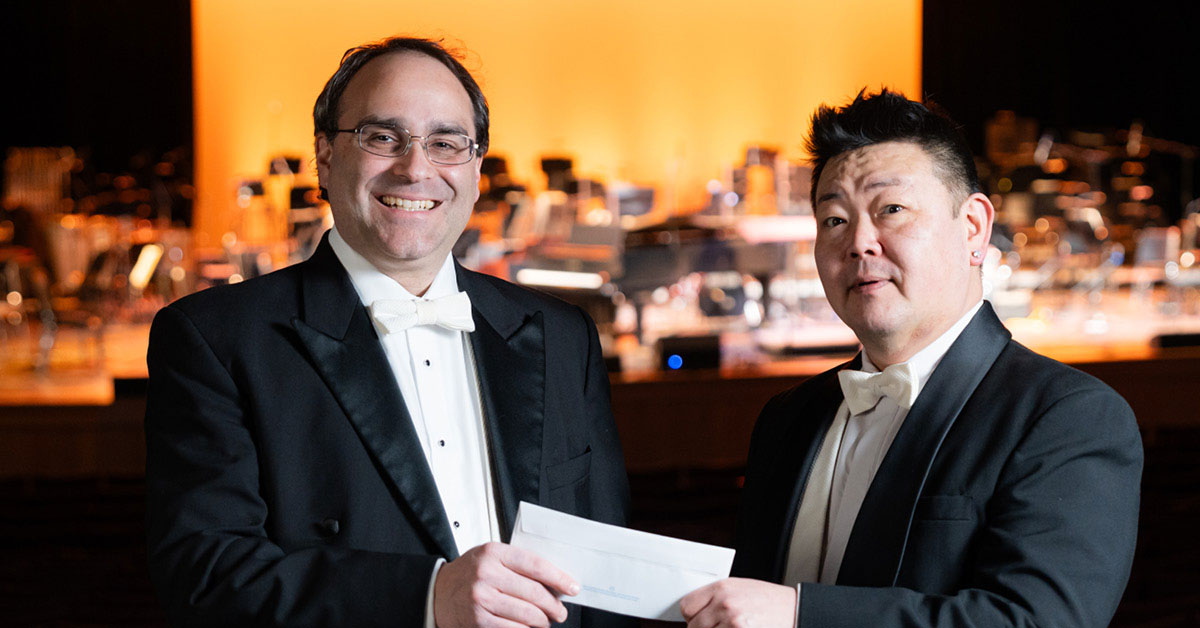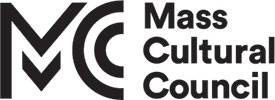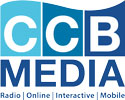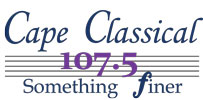The Cape Symphony Orchestra presents “’And the Winner Is…’ Music from the Silver Screen” on Saturday, February 22, 2025 at 7:30 PM and Sunday, February 23, 2025 at 3:00 PM at the Barnstable Performing Arts Center.
Download a printable version of these Show Notes.
Cape Symphony
Joe Marchio and Mark Miller, Conductors
Joe Marchio and Jae Cosmos Lee, Co-Hosts
Guest Artist
Dee Roscioli, Vocals
New York-based Dee Roscioli is renowned for her seven-year portrayal of Elphaba in the smash hit Wicked, for which she led the Broadway, Chicago, San Francisco, and First National Touring companies. Ms. Roscioli has appeared on Broadway in The Cher Show as the pop icon herself, as Fruma Sarah in the Broadway revival of Fiddler on the Roof which was filmed and archived for Lincoln Center’s performance library, and as Grizabella in the First National Tour of Cats. She has been a headlining artist with the Philly Pops and in many performances across America, Europe, and Asia. Cape Symphony Orchestra audiences may remember her from our 2022 “Bravo Broadway!” concert.
Table of Contents
Tickets for “And the Winner Is...”
Program
BEN-HUR
Miklós Rózsa, Arr. John Mortimer
OLIVER!
Lionel Bart, Arr. Alfred Reed
THE GODFATHER WALTZ
Nino Rota, Arr. Brandon Stanley
MUSIC FROM “THE STING”
Scott Joplin, Arr. John Cacavas
BACK TO THE FUTURE: SUITE FOR ORCHESTRA
Alan Silvestri
THE WAY WE WERE
Marvin Hamlisch
LET IT GO, from “Frozen”
Kristen Anderson-Lopez and Robert Lopez
THE LORD OF THE RINGS: THE FELLOWSHIP OF THE RING
Howard Shore
MY HEART WILL GO ON, from “Titanic”
James Horner
~Intermission: 20 minutes~
LAWRENCE OF ARABIA
Maurice Jarre, Arr. John Mortimer
DANCES WITH WOLVES
John Barry, Arr. Steven Rosenhaus
GABRIEL’S OBOE, from “The Mission”
Ennio Morricone, Arr. Robert Longfield
OVER THE RAINBOW, from “The Wizard of Oz”
Harold Arlen
BABY ELEPHANT WALK, from “Hatari!”
Henry Mancini
THE SOUND OF MUSIC
Richard Rodgers, Arr. Robert Russell Bennett
THE GRAND BUDAPEST HOTEL
Alexandre Desplat
SKYFALL
Adele Adkins
ADVENTURES ON EARTH, from “E.T. the Extra-Terrestrial”
John Williams
Please note the program is subject to change.
About Today’s Program
Welcome to the red carpet! The Cape Symphony Orchestra is thrilled to perform some of Hollywood’s most iconic music. What memories will it bring back for you?
BEN-HUR
Miklós Rózsa (1907-1995), Arr. John Mortimer
Here we go! Your Cape Symphony Orchestra kicks off today’s performance with the captivating theme to Ben-Hur (1959). Hungarian-American composer Miklós Rózsa wrote a hundred film scores over his career. He earned 17 Academy Award nominations and won thrice, including for this grand-scale epic, widely thought to be his greatest masterpiece for cinema. “I was lucky to have been connected with great films, really,“ he said in a 1987 interview. “How can you miss with Ben-Hur?”
Even with this tremendous success, Rózsa considered film scoring primarily as a way to pay the bills. His contract with MGM stipulated that he be allowed substantial time away from the studio to focus on composing concert music.
OLIVER!
Lionel Bart (1930-1999), Arr. Alfred Reed
The period musical film Oliver! (1968) is based on English composer Lionel Bart’s tremendously popular stage musical (1960), itself an adaptation of Charles Dickens’s Oliver Twist. The film garnered 11 Academy Award nominations and won six, including Best Picture and Best Original or Adaptation Score. The soundtrack album spent 91 weeks on Billboard’s Top Album chart in the USA. Bart’s other film work includes the theme song to the Bond film From Russia with Love.
Lionel Bart could neither read nor write music. He hummed the melodies for Oliver! to Eric Rogers, who transcribed them.
THE GODFATHER WALTZ
Nino Rota (1911-1979), Arr. Brandon Stanley
Oh, this haunting melody! Italian composer Nito Rota’s score for Francis Ford Coppola’s The Godfather (1972) is one of the most famous and influential in cinematic history, and a key reason the film is considered one of the greatest ever made. Rota based this theme off the opening melody of Jean Sibelius’s Symphony No. 1, to tremendous effect. The piece is both nostalgic and foreboding.
Thinking the score too “highbrow,” Paramount executives reportedly didn’t want to use it. Thankfully, Coppola overruled them. The American Film Institute ranks The Godfather score fifth on their list of greatest film scores. Its Oscar nomination was revoked when the Academy learned Rota had incorporated some of his own previous work in the score, and it was therefore not strictly “original.” He did win the Oscar for the score for The Godfather Part II.
MUSIC FROM “THE STING”
Scott Joplin (1868-1917), Arr. John Cacavas
The Robert Redford/Paul Newman caper The Sting (1973) was a great critical and commercial success, winning Best Picture and six other Oscars. It is closely associated with its soundtrack of Scott Joplin’s ragtime pieces, particularly “The Entertainer,” adapted by Marvin Hamlisch.
Ragtime, a musical style related to marches and a strong influence on early jazz, originated within African American communities in the late 19th century. The Sting’s popularity drove a resurgence of enthusiasm for the form and for Joplin’s work in particular.
BACK TO THE FUTURE: SUITE FOR ORCHESTRA
Alan Silvestri (b. 1950)
Award-winning American composer Alan Silvestri is behind the scores for many blockbuster films, including Back to the Future (1985, and sequels), Predator, Forrest Gump, Contact, Cast Away, The Polar Express, and several Marvel Cinematic Universe films, to name just a few. He also contributed music and lyrics to the Back to the Future stage musical.
Director Robert Zemeckis is said to have given Silvestri just one direction for the first Back to the Future score: “Al, it’s got to be big.” Back to the Future “was a story about great friendship, great challenges, and heroism,” Silvestri told Esquire. “I needed to have some kind of heroic theme, something identifiable that even a few notes would conjure the rest of it.” Clearly, he knocked it out of the park.
THE WAY WE WERE
Marvin Hamlisch (1944-2012)
This irresistibly bittersweet song from the 1973 Barbra Streisand/Robert Redford romantic drama film of the same name has been declared “one of the most recognizable in the world.” It earned Marvin Hamlisch two Oscars: Best Original Song, which he shared with lyricists Alan and Marilyn Bergman, and Best Original Score. The song also took Golden Globe and Grammy awards. The soundtrack album hit the top 20, and the title song was named the number 1 pop hit of 1974. In 1998, it was inducted into the Grammy Hall of Fame.
Hamlisch is one of a very few artists to have achieved a “PEGOT,” having won Pulitzer, Emmy, Grammy, Oscar, and Tony awards. He and Streisand were collaborators and close friends for several productive decades, beginning in 1963 when he was her rehearsal pianist for Broadway’s Funny Girl. Streisand sang “the Way We Were” in Hamlisch’s memory at the 2013 Academy Awards.
LET IT GO, from “Frozen”
Kristen Anderson-Lopez (b. 1972) and Robert Lopez (b. 1975)
Disney’s Frozen (2013) was a phenomenal success, quickly becoming the highest-grossing animated film of all time. Queen Elsa’s power ballad “Let it Go” was an instant classic. Writers Kristen Anderson-Lopez and husband Robert Lopez won the Academy Award for Best Original Song.
With “Let it Go,” they changed the course of the entire film, as the character of Elsa was originally intended to be a villain. The story was reworked to suit this anthem of fierce self-acceptance. “I think anyone who’s carrying a secret shame that gets so heavy that they really can’t carry it anymore is identifying with this idea of just shedding that and starting anew,” Kristen Anderson-Lopez told NPR. “Letting it out, letting it all explode, and trying to find your way forward.”
Broadway sensation Idina Menzel voiced Elsa for the film. Like our guest vocalist Dee Roscioli, Menzel is known for playing Elphaba in the smash hit musical Wicked.
THE LORD OF THE RINGS: THE FELLOWSHIP OF THE RING
Howard Shore (b. 1946)
Canadian composer Howard Shore has written over 80 film scores, winning three Academy Awards for his work on director Peter Jackson’s The Lord of the Rings trilogy. He was also the original music director for television’s Saturday Night Live, and it was his idea for John Belushi and Dan Akroyd to call themselves The Blues Brothers. Shore’s other film work includes the scores for The Silence of the Lambs, Philadelphia, Mrs. Doubtfire, High Fidelity, and The Departed, to name just a few.
The Lord of the Rings: The Fellowship of the Ring (2001) is the first installment in the celebrated trilogy. It was Shore’s first epic undertaking, and became the most successful work of his career. The music is regularly performed by orchestras worldwide as symphony pieces, concert suites, and live-to-film productions.
MY HEART WILL GO ON, from “Titanic”
James Horner (1953-2015)
Dee Roscioli returns to the stage to perform the theme song from James Cameron’s Titanic (1997). “My Heart Will Go On” was written by James Horner and famously performed by Céline Dion. Roscioli currently stars as Ms. Dion in the wacky off-Broadway musical Titanique, which retells the story in the film from the singer’s perspective.
Horner won two Oscars, three Grammys, and two Golden Globes for his work on Titanic, which became the best-ever-selling orchestral film soundtrack. “My Heart Will Go On” was originally an instrumental motif. Horner enlisted lyricist Will Jennings to make it a song for the film’s end credits, which Dion reportedly recorded in one take. It became her signature song, and one of the best-selling singles and radio hits of all time.
~Intermission~
LAWRENCE OF ARABIA
Maurice Jarre (1924-2009), Arr. John Mortimer
Lawrence of Arabia (1962) returns us to the epic style of Hollywood’s golden age, with a score that matches the film’s grand scale and adventurous spirit.
Though he scored dozens of films and worked with many acclaimed directors, French composer Maurice Jarre is best known for his collaborations with David Lean, including the Oscar-winning scores for Lawrence of Arabia, Doctor Zhivago, and A Passage to India. The soundtrack for Lawrence of Arabia was composed in just six weeks, and performed by the London Philharmonic Orchestra.
DANCES WITH WOLVES
John Barry (1933-2011), Arr. Steven Rosenhaus
English composer John Barry’s score for Dances with Wolves (1990) won both Grammy and Academy Awards. The film is an epic western produced and directed by and starring Kevin Costner as a Union Army Lieutenant at a frontier outpost. With its prominent trumpet and snare, the score captures the military life; its soaring strings reflect the splendor of the landscape and the characters’ reverence for it.
The score was initially assigned to composer Basil Poledouris based on his work for Lonesome Dove. Barry, most recently associated with Out of Africa and, of course, the music for a dozen James Bond films, was brought on after Poledouris left to work on another project. Preparing to write the score, Barry listened to a lot of Native American music for context but did not incorporate it directly, explaining that “for me the score had to be seen through the eyes of its protagonist... a noble, simple and dedicated man who had a kind of purity in everything he did.”
GABRIEL’S OBOE, from “The Mission”
Ennio Morricone (1928-2020), Arr. Robert Longfield
With more than 400 scores for cinema and television. Italian composer Ennio Morricone is one of the most prolific film composers ever. “Gabriel’s Oboe” is his celebrated main theme for the grim British historical drama The Mission (1986), about the experiences of a Jesuit missionary (Gabriel) in 18th century Paraguay. In the film, Gabriel plays his oboe by a waterfall, hoping to befriend the indigenous people and advance his missionary work. While Gabriel played to mixed results, the film’s score is an undisputed triumph.
Morricone’s music for The Mission was nominated for the Academy Award for Best Original Score.
OVER THE RAINBOW, from “The Wizard of Oz”
Harold Arlen (1905-1986)
Composer Harold Arlen worked with lyricist Yip Harburg on The Wizard of Oz, trading ideas, words, and melodies till a song came together. With all the other songs for the film already written, Harburg envisioned a ballad for a little girl yearning to leave trouble behind. Arlen knew he needed a melody to match that longing, but he just didn’t have it. Pressure built. Then on a drive down Sunset Boulevard, Arlen suddenly asked his wife to pull over. “I really don’t know why—bless the muses—and I took out my little bit of manuscript and put down what you know now as ‘Over the Rainbow,’” he later recalled.
MGM executives wanted to cut the song for pacing, and relented only when associate producer Arther Freed threatened to quit. The song stayed, and took on a life of its own. It became Judy Garland’s anthem and a cultural icon. It has been covered countless times, by artists from Glenn Miller to Ella Fitzgerald and Israel Kamakawiwo’ole to Ariana Grande. Today, Dee Roscioli will take you Over the Rainbow.
BABY ELEPHANT WALK, from “Hatari!”
Henry Mancini (1924-1994)
Henry Mancini won a Grammy Award for Best Instrumental Arrangement for “Baby Elephant Walk,” written for a scene in the John Wayne adventure rom-com Hatari! (1962) in which three baby elephants are led to a watering hole for a bath. It’s a cute, catchy, and fun boogie-woogie. “The real stars of the picture were the three baby elephants who had the big scene down at the lake,” said Mancini, introducing a 1964 performance. “Most people think that was the inspiration for Baby Elephant Walk, but you see I have three baby elephants of my own at home...”
The song has been covered by performers including Lawrence Welk and Quincy Jones, and been featured on Cheers, The Simpsons, and Friends, among others.
THE SOUND OF MUSIC
Richard Rodgers (1902-1979), Arr. Robert Russell Bennett
The soundtrack to The Sound of Music (1965) was largely written by Richard Rodgers, including the lyrics for two new songs, as Oscar Hammerstein, his lyricist partner for the stage musical, had died in 1960. The soundtrack album is one of the most successful in history, with over 20 million copies sold worldwide. It shot to number one on the Billboard 200, and remained in the top 10 for over two years.
The movie was released to mixed reviews, though it won big at the Academy Awards and enjoyed huge commercial success. “The East Coast intellectual papers and magazines destroyed us,” recalled director Robert Wise, “but the local papers and the trades gave us great reviews.” In any case, the film has withstood the test of time; countless fans adore it, a testament to Rodgers’s tremendous talent.
THE GRAND BUDAPEST HOTEL
Alexandre Desplat (b. 1961)
The score for The Grand Budapest Hotel (2014) is the third collaboration between French composer Alexandre Desplat and director Wes Anderson. Like the film, the music is a wacky amalgamation of playfulness, suspense, comedy, and horror. It won Desplat his first Oscar for Best Original Score, a Grammy, and an array of other prestigious honors including the World Soundtrack Award for Best Original Score of the Year.
Anderson was looking for a midcentury, central European sound for The Grand Budapest Hotel. This presented Desplat with plenty of inspiration: “…of course you can think of the zither, the balalaikas, the percussion instruments that come also from the east, the Alpenhorns,” he told an interviewer. “It was all these things put together in a big, big, big pot. When you start mixing them together it becomes kind of a strange, special, weird sound. And that's what we were excited to do.”
SKYFALL
Adele Adkins
No “silver screen” themed concert is complete without a Bond song, and this is one of the very best. British singer Adele wrote “Skyfall” for the 2012 Bond film of the same name, with ominous, moody lyrics to match the plot. It was released to high critical acclaim and enthusiastic comparisons to the Bond songs performed by Shirley Bassey in the 1960s and 1970s.
“Skyfall” won Golden Globe and Academy Awards for Best Original Song. Adele performed the song live for the first time at the Academy Awards ceremony before she knew she’d won the award.
ADVENTURES ON EARTH, from “E.T. the Extra-Terrestrial”
John Williams
Our program concludes with beloved music from the one and only John Williams. E.T. the Extra-Terrestrial (1982) was another phenomenal collaboration between Williams and director Steven Spielberg. Recording the score, it was difficult to time the music for the final chase scene to line up precisely with events in the film. Spielberg reportedly stopped the projector and told Williams to record the score exactly as Williams wanted it. Rather than alter the music, Spielberg reworked the film sequence to match it.
The score was the fourth ever to win BAFTA, Golden Globe, Grammy, and Academy Awards. The previous two were Star Wars and Jaws, also composed by Williams. He is the only person to have won all four awards for the same score more than once.
This powerful music lifts spirits today just as in 1982, when E.T. levitated the children’s bikes for that iconic peddle across the sky to safety… and to more than a few joyful tears in the audience.
Tickets for “'And the Winner Is...' Music from the Silver Screen”
“And the Winner Is… Music from the Silver Screen” will be performed at the Barnstable Performing Arts Center, 744 West Main Street, Hyannis on Saturday, February 22, 2025 at 7:30 PM and Sunday, February 23, 2025 at 3:00 PM. Tickets are available for Saturday’s performance; Sunday’s is all but sold out.
For more information and to purchase tickets, visit www.capesymphony.org, call the Box Office at 508.362.1111, email
Only tickets purchased on Cape Symphony’s secure website or through the Cape Symphony Box Office are legitimate, guaranteed, and eligible for exchanges or credits in accordance with our ticket policies.
Behind the Scenes
Cape Symphony Board of Trustees and Staff
“Academy Award” and “Oscar” are registered trademarks owned by the Academy of Motion Picture Arts and Sciences.
Thanks to bruceduffie.com, esquire.com, legacyofjohnwilliams.com, nytimes.com, news.columbia.edu, udiscovermusic.com, and Wikipedia


























